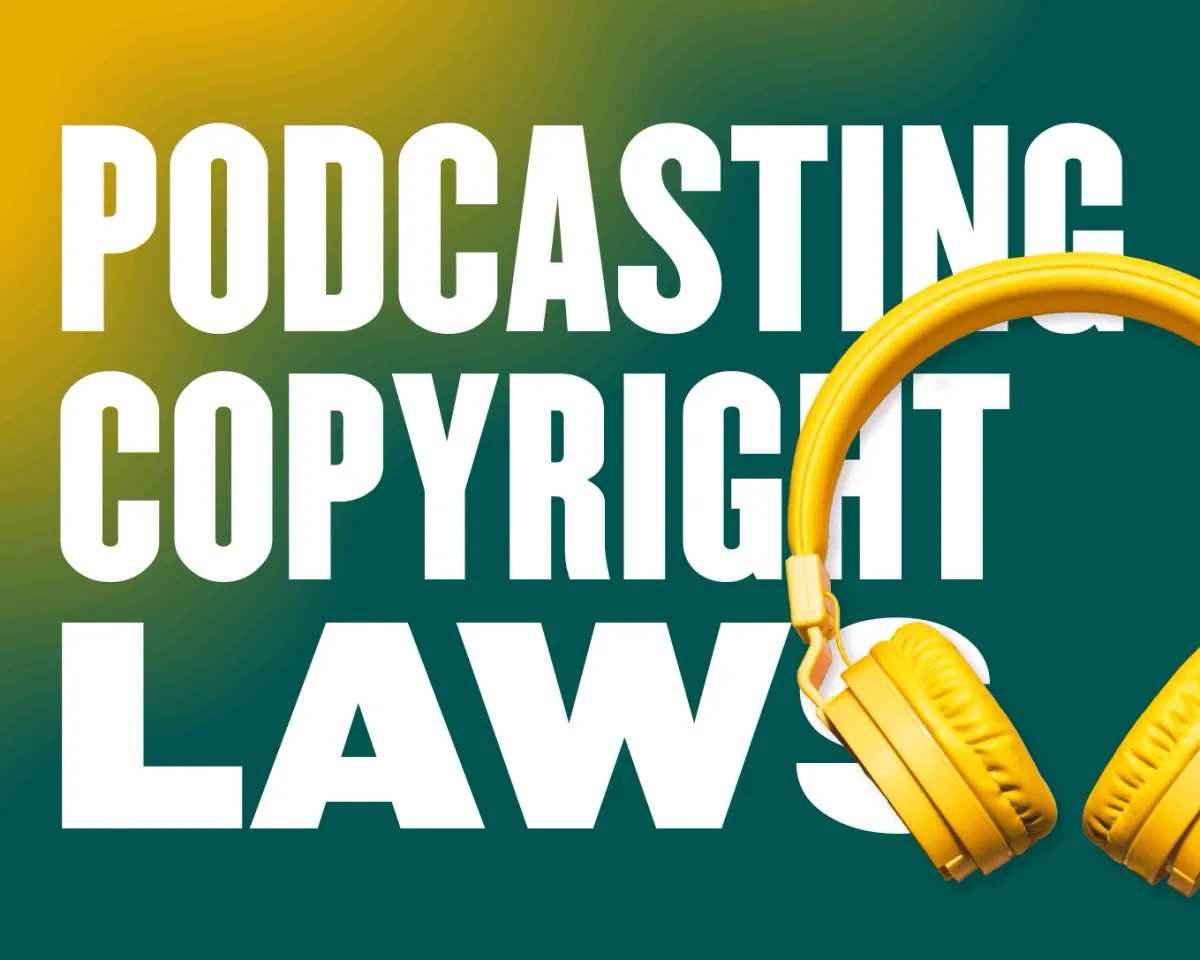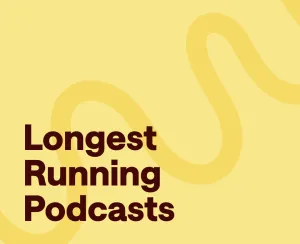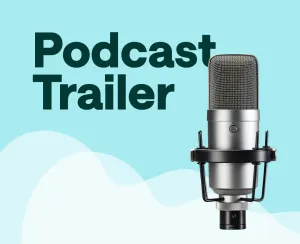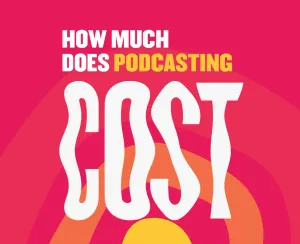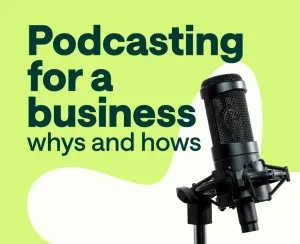Recently, podcast popularity has been growing massively, with the number of podcast listeners expected to exceed 160 million in the US by 2023. Unsurprisingly, this has led many to create new podcasts around interests, controversies, or well-being topics. This is particularly assisted by the availability of equipment and various free podcast streaming platforms.
However, like all forms of content creation and distribution, there are laws and guidelines to keep podcasts original and fairly crediting the creators. All creators want control of their ideas and content, just like everyone does. Copyright laws are in place to ensure this happens and leads to trouble if you don’t respect them, so do your research to keep your podcast in the clear.
What Are Podcasting Copyright Laws?
Within podcasting, there may be elements of your episodes that use the ideas and creations of others. Podcasting copyright laws target these aspects to ensure any content you use gives credit to the appropriate authors with their approval. These laws protect all types of creators and their content from being stolen, manipulated, or copied, determining who can use it and how.
There are permissions and steps to protect yourself and your podcast from copyright claims, just as you’d use a basic sponsorship agreement template with financial supporters to create a mutual contract. As well as regional laws, your podcast streaming service may have its own terms and conditions referring to copyrighting. So, be aware of the restrictions on your podcast material.
Podcasting Copyright Laws
1.Intellectual Property Law
When you come up with a great idea, you don’t want someone else to copy it and take the credit. Intellectual property law gives you the right to make money from the ideas you have, whether they be in the form of music, words, symbols, or designs. If someone else creates a copy of your original idea, the intellectual property law implie that you are owed compensation.
In the case of podcasting, intellectual property law applies to logos, jingles, or even concepts discussed on your show. Of course, if your business podcast is talking about using the lead time formula or affiliate marketing strategies, you’ll probably say similar things to others discussing the same topic. Nevertheless, you can’t pass off an idea you heard from someone else as your own on the podcast, as it would be stealing and plagiarizing their intellectual property.
2. Copyright Law
Similarly, you can’t include someone else’s content or art in your podcast without permission. Regarding this, there are many myths, such as you can use copyrighted material if it’s not for profit, only used for a short period, or the creator is credited. However, these are false; the only way to use someone else’s creation is by getting the appropriate license.
Depending on the content you wish to include, you can purchase the license for each piece of media you intend to use. It helps license audio effects or background music and can be easily done through several websites. Alternatively, include your ProcessBliss business processes when applying for a creative commons license, so you can use specified audio clips and content by sticking to the rules set by the copyright owner.
3. Privacy Law
Not every private conversation is okay for you to discuss on your podcast, especially if it involves sharing personal information that others are unwilling to give out. It may also apply to anecdotes involving other people used in your audio stories, especially if it’s possible to identify the individual. Although it feels like original content, as it’s your experiences, everyone has the right to keep personal information private, meaning you can’t talk about it in your show.
Free to use image sourced from Pexels
One way to overcome this is by changing the personal information within the story. You can use fake names, change the locations of events, or select random dates instead. However, those involved in the story may still recognize it and feel like you’re profiting from their real-life experience. To avoid this, you could seek their permission beforehand or use a different anecdote.
4. Public Domain
In contrast to copyright law, the public domain covers all content and media not protected by this law. This may be because the work has been deliberately shared in the public domain, the copyright of the work has expired, or the work was created by a US government official. For podcast teams sourcing media, these are free to use without a license or special permissions.
Likewise, if you want your podcast to be used without needing licensing, you can also put it in the public domain. Different podcast streaming services may have terms and conditions regarding the public domain and your show’s relation to it. However, users don’t have to give you credit and can use your recordings in any way they see fit. It can inspire new creative projects using your work or present it in a way that doesn’t align with your intentions.
5. Fair Use Defence
There are some situations where you can use copyrighted materials without a license or permission, avoiding infringement claims by insisting on fair use. These include using the content for criticism, research, education, or news reporting. However, fair use is determined case-by-case, generally focusing on how you use the material within your podcast, what the material is, how much of it you used, and how much using it profits you.
Fair use is a defense and so shouldn’t be relied upon when it comes to the content in your podcast. To use copyrighted materials regularly, it is best to get the appropriate license and avoid infringement claims altogether. Even so, for news-based podcasts or those educating their audience on a topic, the Fair Use Defence may give you access to more content than you realize.
Are Podcasts Copyrighted?
Yes, podcasts are protected by copyright law, just like other forms of creative content. When someone creates and publishes a podcast, they automatically hold the copyright to that content, meaning they have the exclusive rights to reproduce, distribute, and publicly perform their podcast.
Other Legal Compliance Considerations For Podcasters
Defamation Laws
When commenting on social events or people in the public eye, any derogatory commentary could be interpreted as an attempt at defamation. The easiest way to avoid this is to not to talk about other people, however, if that’s going to be a part of your podcast is based on, that might not be possible. Do your research and ensure you know what counts as defamation before you start talking.
Suppression Orders
There are some topics, events, and cases where information cannot be shared due to court orders. Creating a podcast episode about them would be breaching suppression orders and could lead to trouble. If the suppression orders are unclear as to when they end, it’s best to avoid that case and not risk being at fault.
Guest Release Forms
Many podcasts invite episodes that can provide entertainment and variety to the show. Yet, before you start recording with the guest, you should get them to sign a guest release form, enabling you to control the content to be edited and shared. If you want to pay guests for their episodes, you may also need to use a profit sharing agreement template from PandaDoc.
Disclaimers
Podcasts can discuss many topics with experts and non-experts alike. When giving advice or speaking on particular topics, it’s crucial to give disclaimers if you aren’t an expert. It delegates the responsibility to the listeners, encouraging them to do their research, look for other credible information, and prevent them from suing you.
Free to use image sourced from Pexels
Stay Aware of Podcasting Copyright Laws
Over time, laws and regulations can change, so stay updated on any copyright rules or restrictions affecting the content you use. As mentioned before, these also vary depending on your region and the platforms you share the podcast on. You should take the time to become familiar with these laws to create a successful podcast and avoid unwanted problems.
These laws are also in place to protect you and your work. The better you know what they do and don't allow, the more confidence you will have when identifying others breaching the copyright on your work. This means you can ensure you get paid when your work and ideas are used. Protect your podcast and its content today by learning what regulations are surrounding it.
Bio:
Yauhen Zaremba - Director of Demand Generation

Yauhen is the Director of Demand Generation at PandaDoc, all-in-one document management tool for almost all types of document including this PandaDoc thesis proposal template template. He’s been a marketer for 10+ years, and for the last five years, he’s been entirely focused on the electronic signature, proposal, and document management markets. Yauhen has experience speaking at niche conferences where he enjoys sharing his expertise with other curious marketers. And in his spare time, he is an avid fisherman and takes nearly 20 fishing trips every year. He has also written for other domains such as Landbot.io and DivvyHQ.
